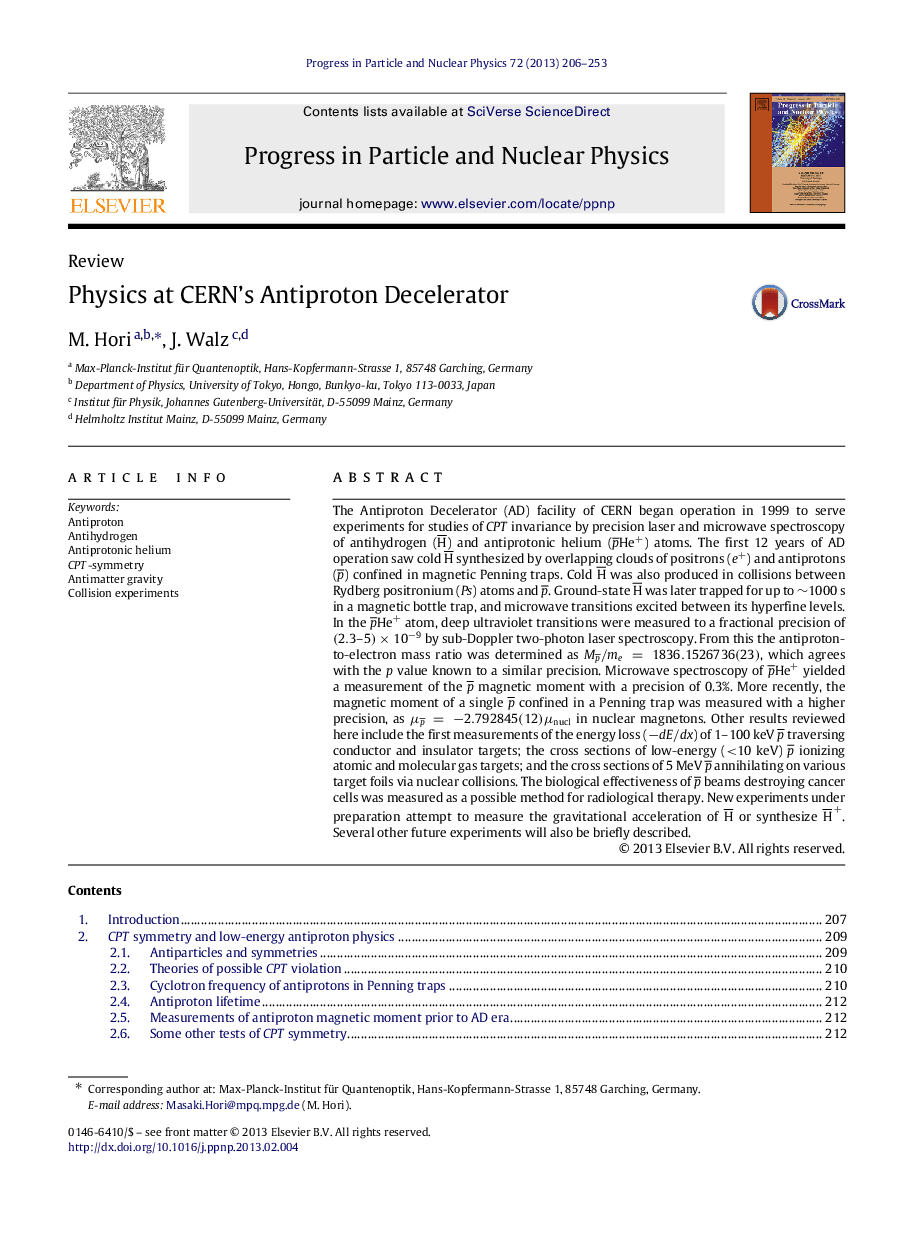| Article ID | Journal | Published Year | Pages | File Type |
|---|---|---|---|---|
| 1853979 | Progress in Particle and Nuclear Physics | 2013 | 48 Pages |
The Antiproton Decelerator (AD) facility of CERN began operation in 1999 to serve experiments for studies of CPTCPT invariance by precision laser and microwave spectroscopy of antihydrogen (H¯) and antiprotonic helium (p¯He+) atoms. The first 12 years of AD operation saw cold H¯ synthesized by overlapping clouds of positrons (e+e+) and antiprotons (p¯) confined in magnetic Penning traps. Cold H¯ was also produced in collisions between Rydberg positronium (PsPs) atoms and p¯. Ground-state H¯ was later trapped for up to ∼1000 s in a magnetic bottle trap, and microwave transitions excited between its hyperfine levels. In the p¯He+ atom, deep ultraviolet transitions were measured to a fractional precision of (2.3–5)×10−9 by sub-Doppler two-photon laser spectroscopy. From this the antiproton-to-electron mass ratio was determined as Mp¯/me=1836.1526736(23), which agrees with the pp value known to a similar precision. Microwave spectroscopy of p¯He+ yielded a measurement of the p¯ magnetic moment with a precision of 0.3%. More recently, the magnetic moment of a single p¯ confined in a Penning trap was measured with a higher precision, as μp¯=−2.792845(12)μnucl in nuclear magnetons. Other results reviewed here include the first measurements of the energy loss (−dE/dx−dE/dx) of 1–100 keV p¯ traversing conductor and insulator targets; the cross sections of low-energy (<10<10 keV) p¯ ionizing atomic and molecular gas targets; and the cross sections of 5 MeV p¯ annihilating on various target foils via nuclear collisions. The biological effectiveness of p¯ beams destroying cancer cells was measured as a possible method for radiological therapy. New experiments under preparation attempt to measure the gravitational acceleration of H¯ or synthesize H¯+. Several other future experiments will also be briefly described.
